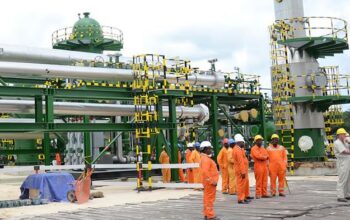Following Angola’s bold decision to exit the Organization of the Petroleum Exporting Countries (OPEC), Banco Fomento Angola (BFA)’s chief economist, José Miguel Cerdeira, emphasized that this departure holds minimal economic costs for the country while unlocking the ability to bolster its oil production.
In a conversation with Lusa on Thursday, Cerdeira clarified that the departure from OPEC doesn’t pose substantial financial burdens for Angola.
He explained that the organization’s waning influence on determining oil prices diminishes any significant drawbacks from Angola’s exit, leaving the country free from potential penalties for exceeding production quotas.
“The decision to leave OPEC has the primary disadvantage of not partaking in decision-making. However, the advantage it offers the State and operators far outweighs this, as it ensures operational freedom without fearing reprimands for surpassing the quotas,” highlighted José Miguel Cerdeira.
Cerdeira highlighted the positive aspect of Angola’s withdrawal, stating, “It’s a small cost compared to the peace of mind it offers.
There’s certainty that Angola won’t encounter problems if it exceeds the quota in certain months of the upcoming year.”
While Angola’s projected daily oil production stands at 1.06 million barrels according to the General State Budget forecast, Cerdeira believes this estimation is overly conservative.
He expressed optimism, expecting that in 2024, there might be months where production could reach or even surpass the defined OPEC quota of 1.11 million barrels per day.
The decision to exit OPEC, announced by Minister of Mineral Resources, Oil, and Gas, Diamantino de Azevedo, aligns with recent public criticisms of OPEC’s restrictive policies.
This move follows the President’s recent visit to the United States, where critiques were voiced regarding OPEC’s strategies.
The decision also coincides with North American investments in the Lobito Corridor. Angola’s stance on increasing oil production diverges from the interest of major global oil producers, who aim to boost international prices.
Angola’s departure from OPEC reflects a strategic move to secure flexibility in oil production strategies, providing the country with the autonomy to shape its oil sector in alignment with its economic interests and goals.
![]()




